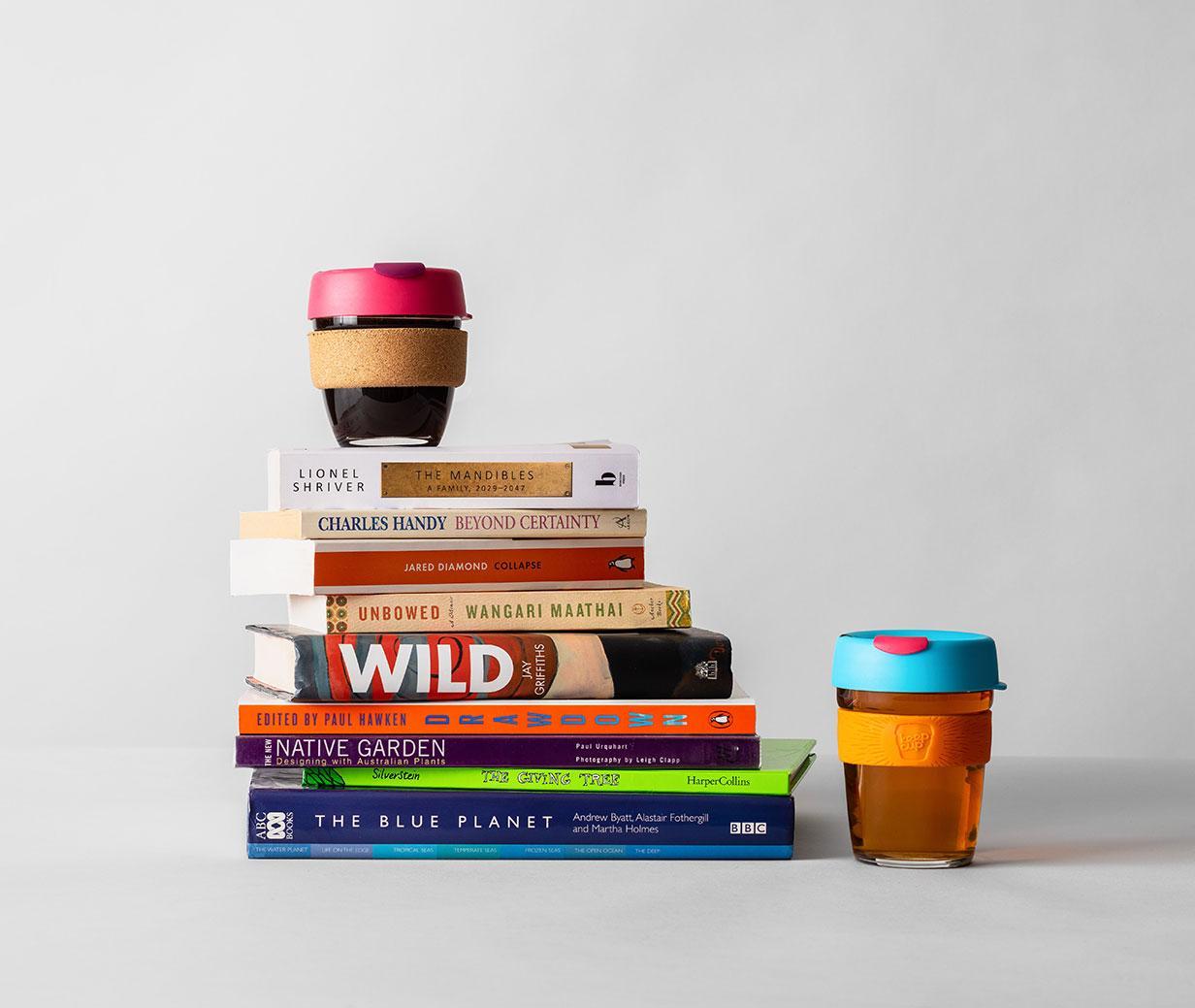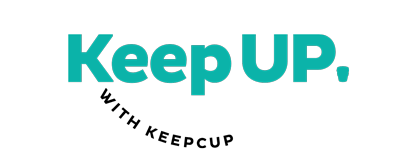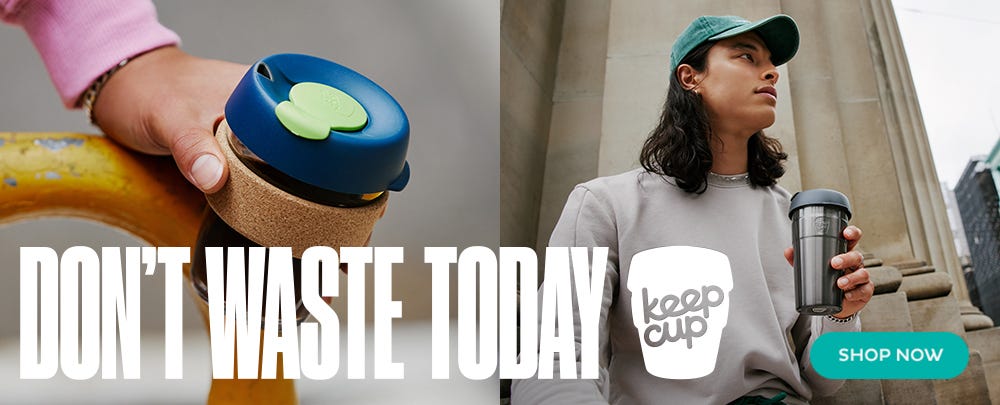
Our hopes and ambitions for the next decade
We’ve been reflecting on the decade that was and the years ahead. Looking back at 2020, we saw a year ushered in by drought, unprecedented fires, flooding rains and a global pandemic.
It was a stark reminder to take immediate and meaningful action to shape a better future.
Here are our hopes and ambitions for these next ten years:
1. A world that has avoided catastrophic climate change
No discussion of our hopes for the next decade can now be had without recognition of Australia’s bushfire crisis and our new climate reality.
The bushfire season from June 2019 into 2020 was unprecedented, severely impacting communities, animals and ecosystems.
This was a massive wake up call to immediately decarbonise and dematerialise the economy. Governments and businesses must step up and act now. Our greatest hope is that this bushfire emergency spurs the action required for a safe climate future.


KeepCup is committed to being carbon neutral by 2025, preferencing real reduction over offsetting. We’re working with Edge Environment to analyse our footprint and explore adoption of a science based target. We undertake life cycle analysis to identify where we can make most effective change within our product life cycle. We manufacture locally to lower the carbon footprint of our products. We have rooftop solar on our Australian and UK buildings. We reduce our footprint by taking a minimalist approach to technology and travel.
In ten years we envisage a world where governments and businesses have stood up for future generations and led the transition to a low carbon economy.
2. A world that has addressed the extinction crisis
As a global community we have little time left to respond to the UN’s latest extinction findings and address ecosystem decline. Governments and businesses need to act now, with transformative plans to restore and protect our natural world.
As businesses we need to incorporate biodiversity as a key consideration in decision making.
KeepCup is a B Corp because we believe in embedding this kind of decision making into everything we do. We also work closely with environmental non-profits to support nature conservation.
In ten years, we envisage a future where businesses and governments have adopted triple bottom line decision making and invested in biodiversity, resulting in thriving ecosystems that support healthy communities.
3. An end to unnecessary and problematic single-use packaging, beginning with coffee cups
We are now at a turning point, where action on single-use plastic is taking hold across the world. From workplaces to governments, policies and legislation are being passed to put an end to plastic waste.
In ten years we hope that people look back, incredulous, that we thought it was ok to use plastic only once before discarding it.
4. Circular economies
We work with Planet Ark and similar organisations around the world to support the transition to a circular economy. For sustained life on our planet there needs to be an end to the ‘take-make-waste’ linear model.
In ten years, we envisage vibrant local manufacturing industries that recover and reuse resources; circular systems that put real value on materials, create jobs, revitalise local industry and are powered by clean energy.
Reduction, reuse and repair become the norm.


5. Product stewardship
We believe that producers need to take ownership across the whole lifecycle of their products, including end of life.
Over the next decade we will continue to advocate for stronger product stewardship and extended producer responsibility as a key part of the circular economy.
We will continue to embed circular thinking into design, designing for longevity and multifunctionality.
We will continue to reduce waste across our supply chain through advanced forecasting and colour range planning, reduced manufacturing defects and out of spec products.
We will continue to extend the life of our products by expanding the sale of spare parts to retailers, making repair more accessible for all KeepCup users.
We will focus on our own take back schemes to ensure our products are returned and reused when out of circulation.
6. Low impact buildings
Our offices and warehouses around the world aim to be exemplars of low impact buildings and workplaces free from single-use plastics.
We have installed solar panels on our UK and Australian offices and warehouses and work with Planet Ark Power to trial their eleXsys -electricity export system. EleXsys enables excess power to be exported back into the grid, overcoming barriers to commercial solar adoption.


We will continue to practice best in class passive heating and cooling, energy use, waste reduction and separation.
We will encourage our supply chain and stakeholders to do the same.
7. Vibrant, low impact workplaces and industries
Over the next ten years we will continue to work closely with cafes, roasters, companies, universities, and others to support them in becoming single-use free.
We have been, and always will be, embedded within the vibrant local independent cafe scene.
Over the next ten years we will continue supporting roasters and cafes as they drive the coffee fuelled reuse revolution.
8. Living wage
Living wages aren’t a nice to have. They’re a must have. They are critical for fair and equitable communities.
We pay living wages to all employees and work with our suppliers to embed living wages across our supply chain.
Businesses, civil society and governments all play a role in setting agreed living wage standards and increasing minimum wage to meet these.
9. Partnerships for change
Business and civil society partnerships will be critical to shaping the future we want to see.
Through our commitment to 1% for the Planet, over the coming decade we will continue to develop great partnerships with organisations such as Planet Ark, Sea Shepherd and Plastic Free July, amplifying their voice and impact.
10. A global movement of everyday changemakers
Since 2009 we have been leaders in the reuse revolution. Alongside millions of everyday changemakers the world over, we have actively championed the future we all want to see, by saying no to single-use plastics and yes to reuse.
In the next ten years we want to build this movement, working alongside committed changemakers empowered to shape a sustainable future.








